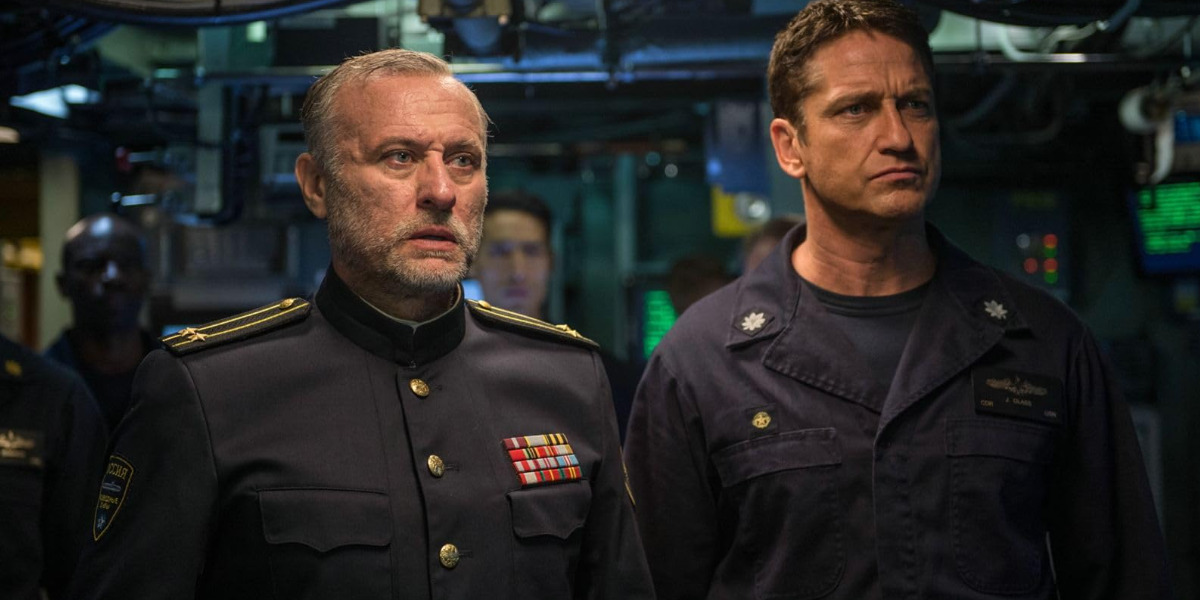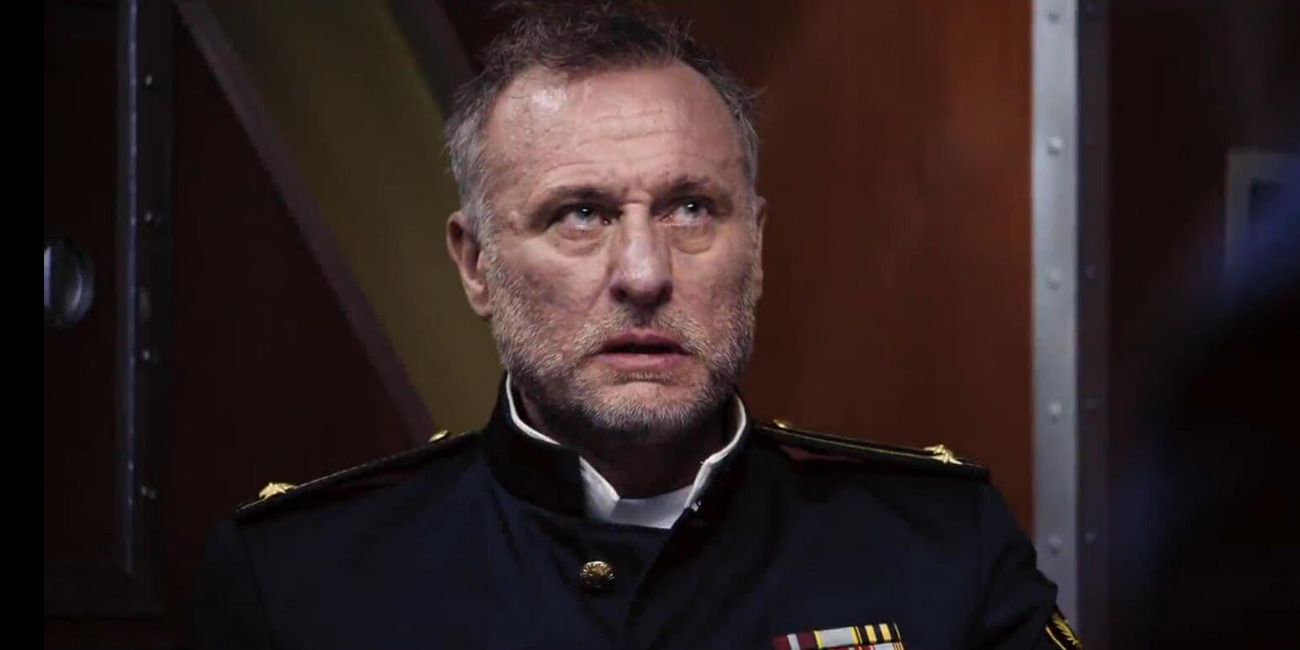An overarching plot, taut with tricky geopolitical implications, looms over Donovan Marsh’s 2018 submarine film, ‘Hunter Killer.’ Following the destruction of two underwater vessels, the U.S. discovers that there’s a coup playing out in the Russian motherland wherein President Zakarin is being held as Defense Minister Durov’s hostage. As a result, the nation edges toward an all-out war with America, which can only be stopped through a covert rescue mission. Thus, under Captain Joe Glass’ command, an attack submarine, the USS Arkansas, embarks on a near-impossible mission with the odds stacked against them.
As Glass and his fellow sailors traverse into uncharted Russian waters, they pick up a Russian General, Andropov, the captain of a vessel previously sabotaged by his own government. Therefore, despite the palpable distrust instilled in the American sailors, Glass entrusts the Russian Captain to do what’s right, even if it means helping the Americans in their quest to rescue the Russian President. Since Andropov and Durov both play such crucial roles in the film’s narrative and in-universe politics, viewers are bound to wonder about their ties to reality.
Hunter Killer’s Fictionalized Politics
The Russian Captain Andropov and Defense Minister Admiral Dmitriy Durov from ‘Hunter Killer’ are both fictional characters with little to no roots in reality. In line with the rest of the film, which remains a work of fiction adapted from ‘Firing Point,’ the novel by George Wallace and Don Keith, these characters are also fabricated in service of the narrative.

The story aims to provide a thrilling account of the bravery of U.S. Navy SEALS in an action-packed tale laced with political themes. As such, the storyline ends up equipping America’s politically complicated relations with Russia. Although actor/producer Gerard Butler attempted to bring this story to Hollywood back in 2011 when he first read the book, the political climate of the time played against the idea.
Nevertheless, the script remained in the works until, in time, it eventually got picked up. According to Butler, as the situation between the two nations grew “more aggressive to intense” in real life, it allowed the film’s premise to retain some authenticity and instill credibility among audiences. Therefore, for the most part, Andropov and Durov have their respective parts to play as Russian characters in maintaining the sense of realism within the story.
Interestingly, each character plays distinctly juxtaposing roles within the narrative. Where Durov remains the face of unjust evil, with his betrayal and vehement decision to go to war against the States, Andropov earns trust and respect through his morality even in a submarine full of foreigners. These contrasting character traits allow both characters to leave respective impressions on the viewers. Furthermore, it also prevents the film from making any broad political statements by providing diverse characterizations of Russian military personnel.
Likewise, through Andropov’s character, the narrative highlights the significance of collaboration at intense moments and compels the viewers to view the military in a new light. Thus, his involvement allows an otherwise action flick to carry a deeper theme of mutual respect and common ground that encourages the viewers to engage with the story with more nuance. “There is almost in some ways some strange love story between the two of them [Glass and Andropov]; this friendship that forms because it takes men like that,” said Butler while discussing the dynamic between his and Michael Nyqvist’s characters.
“Whether through God-given natural talent being in your DNA, or a thousand years underwater acquiring so much wisdom that only they can think in that kind of way and that kind of special way that is going to solve a situation as complex and as dangerous and as brittle as this.” Therefore, Durov and Andropov remain crucial in moving the plot forward, with the former taking responsibility for the central conflict while the latter contributes to the solution.
Yet, the entire conflict revolving around a coup within the Russian government and America’s subsequent involvement is fabricated. Therefore, so are Andropov and Durov’s storylines. Ultimately, neither is inspired by real-life people and remains fictional characters confined to a fictional story.
Read More: Hunter Killer: Is the Gerard Butler Movie Based on Actual Events?


You must be logged in to post a comment.